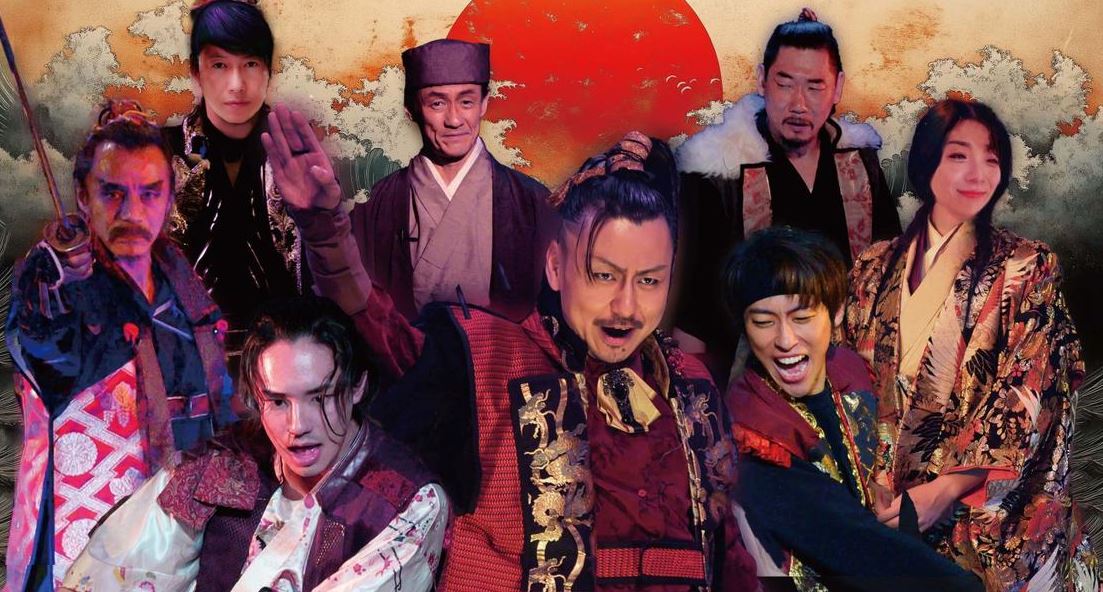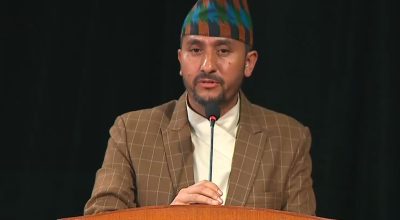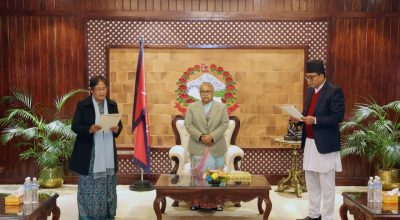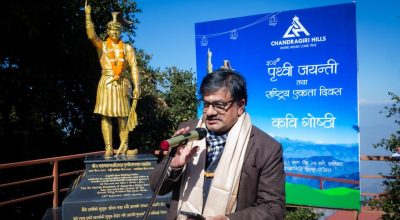
Kathmandu, Dec 22: A unique Japan-Nepal cultural exchange event titled “The Land of the Rising Sun” is set to be held today at the Nepal Academy.
The highlight of the program is the charity musical performance “Samurising”, celebrating the rich cultural connection between Japan and Nepal.
The event, which is free of charge, will begin at 3:00 PM. Organized by Eurasia Film Festival, Sunday.co. Ltd., and Export From Nepal (Dr Group of Industries), the program promises an engaging showcase of Japanese artistry and music.
This initiative aims to strengthen cultural ties between the two nations while offering attendees an unforgettable artistic experience.
The script for the performance has been crafted by Fumiko Kusabe, with direction by Torao Tanaka. The cast includes notable actors portraying historical Japanese figures such as Nobunaga Oda (Torao Tanaka), Mitsuhide Akechi (Yuki Shiomi), and Katsuyori Takeda (Hiroki Noguchi), Ranmaru Mori (Nobunaga’s son – Takato Murai), Yaheiji Miyeke (Mitshuhide’s surname – Takashi Ito), yuziki (Katsuyori’s wife – Rena Masuyama), alongside a special RAP segment by Masayuki Sanada (Hiroki Ichikawa) and song Takayama Ukon (Samurai who does not fight – Bessho Yuji).
What is Japanese Samurai ?
The Way of the Samurai
The way of the samurai dates back to the Late Heian Period (794-1185). The samurai then believed it was important to maintain one’s dignity, while also respecting the dignity of others, even during battle. This way of thinking came to be known as bushido, or the way of the warrior.
Bushido is not about fighting or competing, or only about skill. It is also about respect for human life and the dignity of people. The bushido philosophy valued honor, bravery, selflessness, duty to the samurai’s master, self-discipline, as well as respectful, ethical behavior.
Samurai Skills
Besides being skillful warriors, samurai were highly cultured and literate. They enjoyed calligraphy, tea ceremonies, poetry, and music, as well as studying. Their ideals and education eventually enabled them to dominate government.
When the first samurai-led government was set up in 1160, the emperor lost control and became just a figurehead.
Influence of Zen Buddhism
Beginning in the thirteenth century, Zen Buddhist training allowed samurai to become one with their sword. Zen meditation calmed their minds and gave them the mental strength to face death.
Role of the Sword
According to bushido, the samurai’s sword was the samurai’s soul. In the mid-1600s, military strategy and tactics came to draw heavily on Zen philosophy. Then, during the Edo period (1603-1868), the role of the samurai changed from that of being a warrior to that of a courtier, bureaucrat, and administrator. The sword became a symbol of power and no longer a means of defense.
Decline of the Samurai
The role of the samurai declined in the late nineteenth century, when Japan opened to influence from abroad, and the imperial family regained its power with the Meiji Restoration (1868). In the late nineteenth century, the samurai were replaced by a Western-style national army.
















